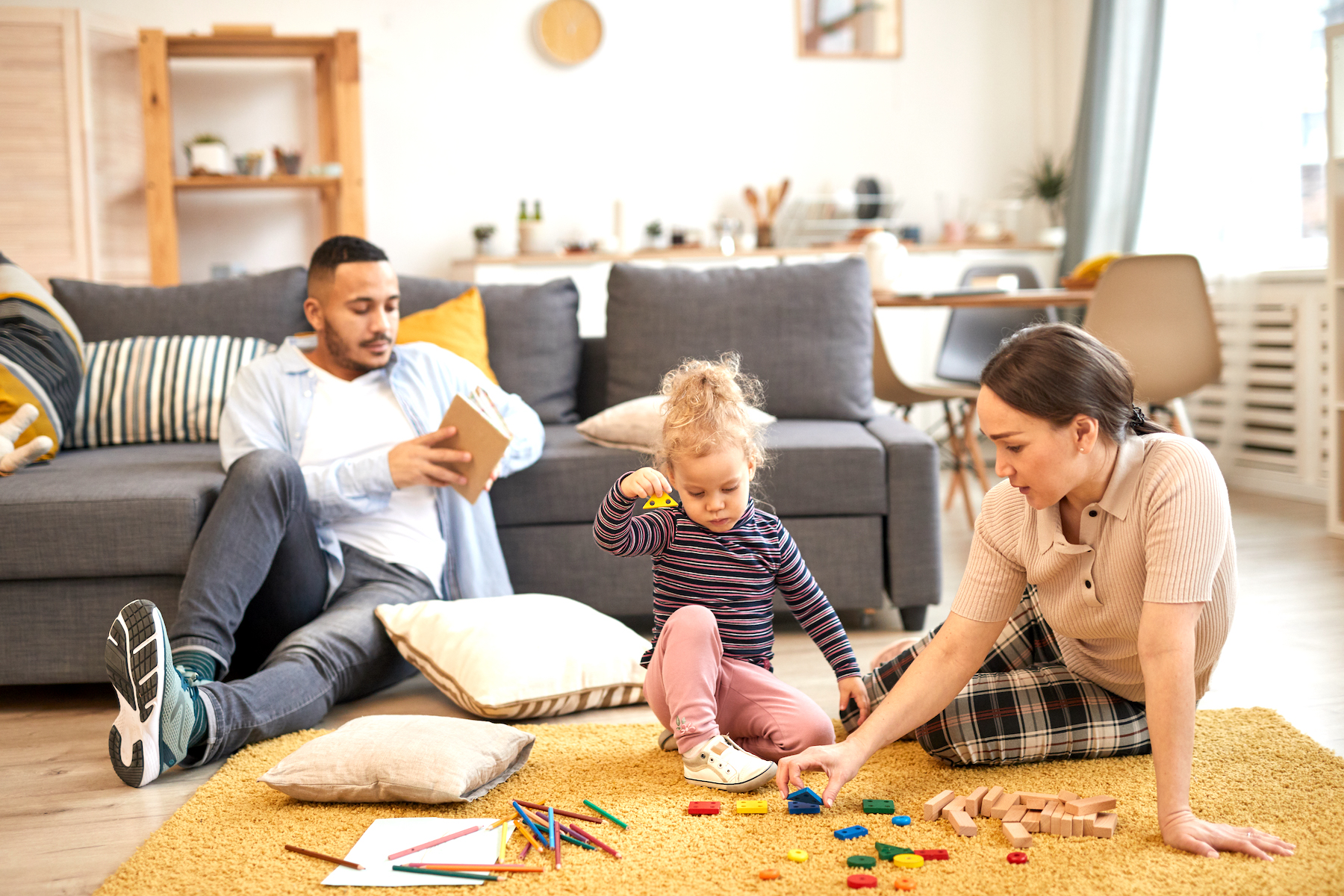Negotiating divorce with children can be very stressful and difficult. Deciding when you should tell the kids that you are getting a divorce takes careful thought and compassion.
As divorce and family mediators, we frequently help our clients navigate this difficult conversation. Read on to learn some of the key factors that will help you guide the discussion while minimizing harm and conflict.
Considerations for Telling Kids About Your Divorce
Be Thoughtful with Timing.
Choose a time when you and your partner can sit uninterrupted. Try your best to avoid important dates or big events such as birthdays, holidays, or school exams.
Practice Co-Parenting.
It is best for both parents to get together and talk. Introducing teamwork and civility will help your child understand that decisions are shared, and not the result of one person’s actions.
Keep it Honest & Age Appropriate.
Adjust your words to your child’s age. Younger children may need simpler explanations, while older children may need more specific explanations. Be honest, but don’t point fingers or give out too much information.
Choose an Easy Place.
Pick an easy and familiar meeting place to break the news, preferably one where the child will be safe and comfortable. This will help create an environment where they can freely express their feelings.
Show Unconditional Love.
Tell your children that the decision to divorce will not change your love for them. Make it clear that they are not responsible for the divorce and that you both will continue to support them.
Prepare to Respond.
Children can respond in many ways, including sadness, anger, confusion, and even help. Be patient and let them express their feelings without judgment. Reiterate that their feelings are justified.
Suggest a Unified Plan.
While you may not have all the answers, provide a complete plan for any changes that may occur, such as living arrangements and schedules. This can help alleviate some of the child’s anxiety about the unknown.
Allow Questions.
Encourage your child to ask questions and answer them as honestly as possible. If you do not have an answer at this time, let them know that you will work together to resolve the issue.
Provide Support.
Let your child know that they can turn to other adults they trust (such as teachers, school counselors or family friends) for support. If you think this is necessary, consider hiring a junior therapist to help them manage their emotions.
Be Consistent.
During this time, strive to be as consistent and organized as possible in your daily routine. This can help give kids a greater feeling of stability during the transition.
Be Transparent.
This discussion is the beginning of an ongoing discussion. Let your children know that you can talk to them at any time and that you will keep them informed of any changes as the divorce progresses.
Remember that it is normal for you and your child to experience many emotions during the divorce process. Patience, understanding and patience will help your child adapt to future changes. If you find it difficult to have this conversation on your own, consider seeking guidance from a family doctor, counselor or other trusted party to facilitate the conversation in a supportive and constructive way.
Looking for advice on the divorce and co-parenting process? Contact San Diego Family Mediation Center to speak with an expert mediator about your situation.
by: Jennifer Segura






